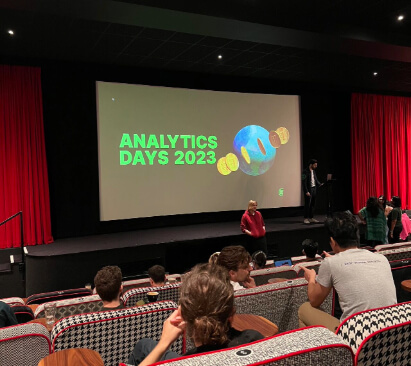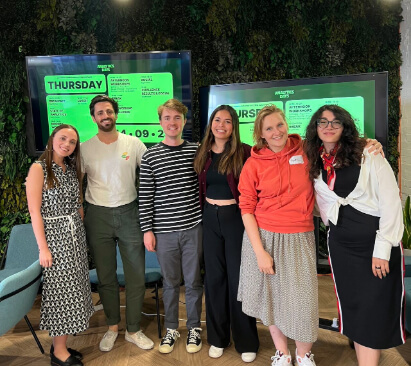Careers in Analytics
Empower Wise with trustworthy data and insights.
Own the data.
Own the solution
You’ll play a significant role in helping Wise to understand our customers. Identifying trends, forecasting, and automating processes, you’ll build creative solutions to team problems using data and insights.
We work cross-functionally in squads who are vital to driving the mission of our business forward. Teams are empowered to define their vision, priorities, and KPIs together. Success is measured by the satisfaction our customers have in our products, and the positive impact it has on their lives."


Always curious.
Always learning
If you’re always looking for bigger and better ways to do things, you’ll do well at Wise. And sharing is caring, so if discovering new things is your thing — you’ll tell the people around you.
You’ll decide what tools you think are needed to develop the best solutions to the problems you’re working on. Whether it’s figuring out the right SQL queries, or deploying cloud-based machine learning processes — it’s up to you to test what’s best.

Jobs you might be interested in
Salary
162,000 - 201,000 SGD per annum + RSUs
Location
Singapore
Team
Analytics
Locations
Singapore
Description
Wise is on a mission to make money without borders - convenient, fast, and eventually free. We’re looking for a Lead Analyst to join our Spend Squad in Singapore. This role is a unique opportunity to
Reference
ecdf7fbc-11b1-4431-b844-dde9fe12533d
Expiry Date
01/01/0001
Salary
-
Location
Budapest
Team
Analytics
Locations
Budapest
Description
Role & Job purpose At Wise, we’ve got a clear mission — money without borders. Built by and for people who live global lives. We’re customer obsessed and rely on timely, accurate and scalable data to
Reference
3307f1e8-8d4a-4c4d-a5fc-68952ad45256
Expiry Date
01/01/0001
Salary
-
Location
Austin
Team
Analytics
Locations
Austin
Description
Product Analyst - Money Movement Team$110,000-145,000 + RSU + BenefitsWise is on a mission to make money without borders - convenient, fast, and eventually free. We’re looking for a mid-level Product
Reference
2fd886ec-5702-4415-812d-5722b9bacf73
Expiry Date
01/01/0001
Related blogs

Teaser
People profileContent Type
BlogPublish date
12/15/2023
Summary
I joined Wise as a Graduate Data Scientist in September 2022 – what a ride it has been since then! I relocated from the Tallinn office to London, we rebranded from blue to green, I’m n
.png)
Teaser
Our workContent Type
BlogPublish date
07/20/2023
Summary
The power of analytics hackathons at Wise Imagine a gathering of brilliant minds, all fuelled by the excitement of a hackathon, where innovation and collaboration are at the for
.jpg)
Teaser
People profileContent Type
BlogPublish date
03/16/2022
Summary
A bit about me Sometimes I ponder what 20 year old me – just about to start university, freshly moved to the UK from Hungary – would think about me today. I bet she would be c
